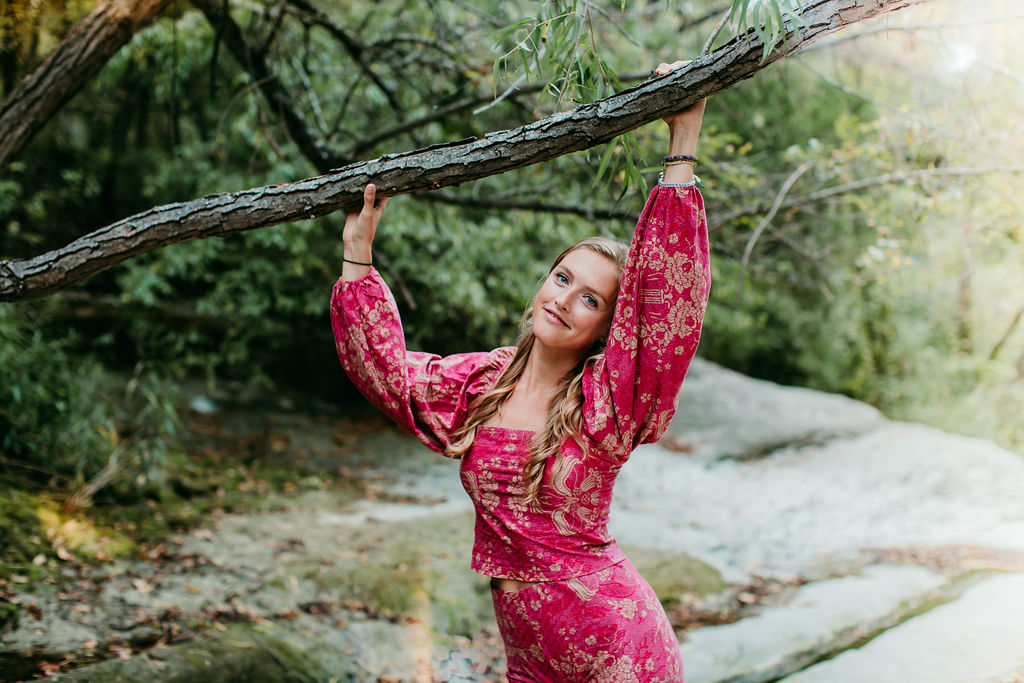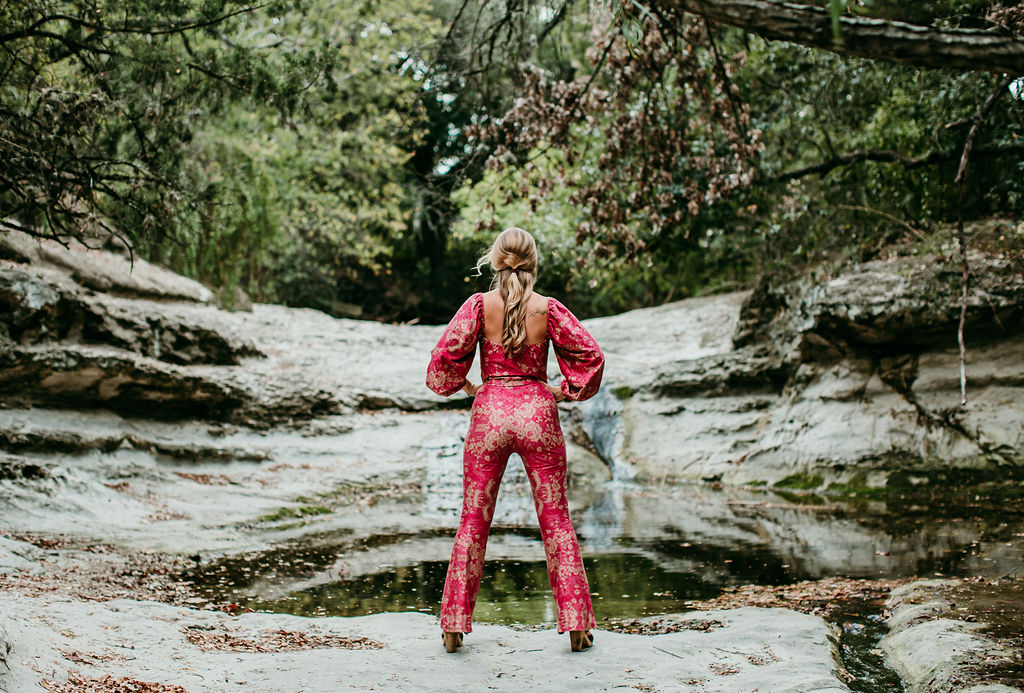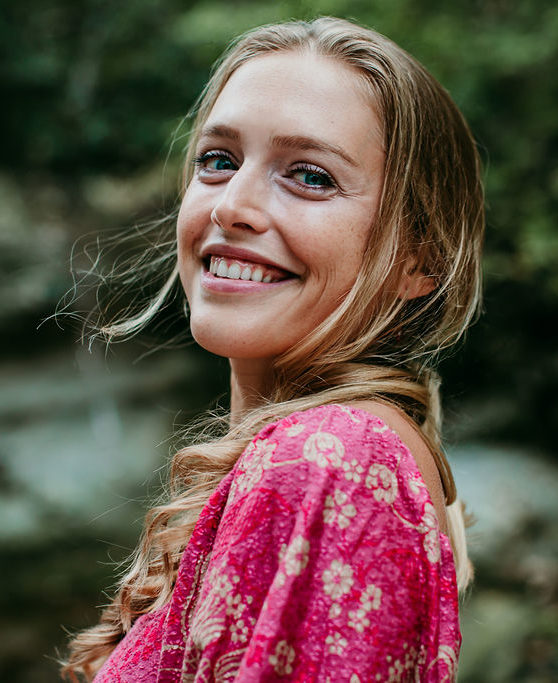Alicia Weigel talks about her fight to make a place for the intersex community in Austin.
By Allie Justis, Photos by Tanialee Gonzalez
As a child you may have learned the basic colors of the rainbow. But as you grow, you find that not only are there more complex colors. There are also other types of colors. There is, in fact, a spectrum of light we wouldn’t have known existed without the knowledge, tools and willingness to learn.
Gender is the same concept. You start with a basic understanding. But if you keep an open mind, you learn there is an entire spectrum to consider. If you have the willingness to accept it.
Human beings don’t fit into these neat little boxes that we want to force them into.
Alicia Weigel
Alicia Weigel, intersex activist and establisher of Austin’s Intersex Awareness Day, is continuously working hard to get the word out about the struggles facing the intersex community.
What It (Really) Means to Be Intersex
To be intersex means to be born in between the sexes, whether through external presenting organs, chromosomal differences or hormonal differences that fall outside the binary.
What makes things most challenging for the intersex community is that there is a distinct lack of visibility. Both on a widespread community scale and also surprisingly within the LGBTQIA+ community. Intersex is the “I” in LGBTQIA+. However, the community and its problems aren’t seen or heard when cut from the acronym and put into the “+.”

“One major issue that comes with being intersex, and being so invisible as an intersex person, is that your identity is erased from the moment you’re born,” says Weigel.
Forcing the Binary
Many intersex children are oftentimes forcibly assigned a specific gender at birth to fit into the male/female binary.
“They want to shove you into an A or B category that society is more comfortable with,” says Weigel. She herself goes by both she/her and they/them pronouns to start the conversation.
However, Weigel was a rare case. She knew she was intersex since the day she was born. The story goes that Weigel’s parents got into a bad car crash when her mother was pregnant with her. To make sure Weigel was okay, they ran many tests and ended up finding out she had XY chromosomes. Her parents planned for a baby boy. They were a little more than surprised when Weigel was born with the anatomy of a girl.
Doctors diagnosed her with “complete androgen insensitivity.” This essentially means that even though Weigel was born with XY chromosomes, she is “insensitive to androgen hormones.” So Weigel never developed the male anatomy, even though she has XY chromosomes.
Identity
“I do identify as a woman. I have been sexually assaulted, I have experienced discrimination in the workplace and I have very much experienced the plight of what it means to be a woman,” Weigel says. “Yet biologically I was born in between, and I don’t want to erase that part of me. So for me, I identify as both. I identify as a non-binary intersex woman. I think that the label may sound confusing to people. But it just shows that human beings don’t fit into these neat little boxes that we want to force them into.
“It was always stated in such a pathologized way,” she continues. “It was always phrased as a sort of disorder that needed to be fixed.
“Forced sterilizations happen to intersex kids everyday,” says says. “But you don’t hear about it because it’s all done in the name of science because they’re trying to make us ‘normal.’ A big reason for Intersex Awareness Day is awareness of these unconsented surgeries that happen to us,” Weigel continues. “For me it was an internal surgery that sterilized me. For a lot of kids it’s external to make their genitals fit more into an A or B category. The World Health Organization and the United Nations has since defined that as Intersex Genital Mutilation or IGN.”
Growing Up Different
Growing up, Weigel says she often felt intense shame and anxiety over having to fake things like having a period. There were major psychological ramifications when considering how pregnancy was never going to be a reality for her.
“What sucked is that the option was always presented like, ‘You have a problem. But if you tell people they’re going to make fun of you. So don’t worry, we’re fixing it. Just keep quiet.’ When you’re raised like that, what you hear as a child is, ‘You’re unlovable as who you are, and so you have to create this identity so you can be loved.’”
Weigel admits she can still see the psychological effects of this shame, especially in her dating life. However, she is doing her best to come to terms with it and take pride in being intersex.
“When you grow up your entire life feeling like you’re inherently unlovable because of how you were born, it’s a really tough thing to shake.”
Doing the Work
Since 2014, Weigel has been working with politician Wendy Davis to establish the organization Deeds Not Words. The organization helps foster Texas’ next generation of activists. They train college students on how to advocate for issues such as stopping sexual assault and fighting for gender equity.

“I was spending my time coaching young people on how to tell their story of injustice…so they could help others,” Weigel says. “Yet there was this huge piece of myself that I was hiding that I had never shared with the world. I had this deep, dark secret that I was born with XY chromosomes and that I went through these procedures as a kid. I always had to see special doctors. Basically I had been lying about who I was my whole life.”
But when the lieutenant governor tried to pass the bathroom bill, Weigel decided to come out loud and proud as an intersex woman.
“What I wanted to tell them was that biological sex was not cut and dry,” says Weigel. “There’s a lot of people around the world born like me. If they want to try and pass discriminatory legislation, they should at least open a biology textbook first.
“There are so many different things that need to change for intersex people,” she insists. “The way we practice medicine needs to change to be more affirming of intersex people. Rather than trying to erase them through scalpels and through psychological manipulation. It’s better to affirm this type of diversity and this type of human being.”
Intersex Awareness Day
In 2019, Austin had its first ever Intersex Awareness Day. This took the form of a rally at Austin City Hall. Notable speakers included Mayor Adler and Council Member Greg Casar. However, for Weigel the most impactful part of the rally was reading the letter her own parents wrote her. It talked about how no one should ever feel ashamed to be intersex or to have intersex children.
The chief urologist at Dell Medical who had performed these surgeries on intersex people also issued a public formal apology.
During the pandemic, Weigel joined the advisory board for Kind Clinic. Her goal is to ensure that all of their hormone replacement therapy, the way they structure their patient relationships and the standard of care are intersex inclusive.
“It’s important politically, it’s important medically and it’s important as a basic human right to affirm that we’re human beings. That we deserve to be treated with the same dignity as anyone,” says Weigel. “If you need consent to touch my body, then you sure as hell need consent to take an organ from it.”

“Being intersex is beautiful.”
“Now that I’ve started to own my pride in who I am, I’ve started realizing that being intersex has made some of the best aspects of who I am as a person. Because I grew up not knowing anyone like me, I always had to be able to empathize with other people to be able to build relationships. And I’ve been able to succeed in life. We all just share this common humanity.”
Weigel says the best thing non-intersex people can do for the intersex community is help raise its visibility. “There are so many kinds of intersex voices that need to be heard,” she says. “Taking the time to see who these advocates are and then follow them on social media so that you start to become more aware of our community and what we’re fighting for is very important.
“We should have the ability to identify as who we are and the ability to create our own identity,” Weigel continues. “We need society to understand there’s nothing they need to fix in the first place. We’re lovable as we are. We’re different. But that’s something that should be celebrated, not something that should be hidden.”
For many in the Austin community, Oct. 26 may be the first time they hear the term intersex. However, by sharing her story and establishing Intersex Awareness Day, Weigel hopes folks start to understand the intersex community is full of thinking, feeling people who are deeply complex.
Learn more about Intersex Awareness Day.

